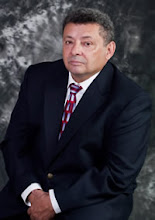And I was more surprised to learn his victory was not universally celebrated by African leaders.
Accustomed to being accorded second class status, several Africans felt Obama's victory minimized the leadership and courage of one of their own: Zimbabwe Prime Minister Morgan Tsvangirai.
This position was echoed by others knowledgeable about African politics.
The Daily Kos wrote:
"The Nobel Peace Prize is about who you are, not who you aren't."
"9 months ago, Barack Obama was the junior senator from Illinois, and I hope that over the next 39 (hopefully 87) months he does something to earn the award, but there is simply no comparison between his actions to date (less than 9 months) to the years long efforts of Morgan Tsvangirai . . . on behalf of peace, reconciliation, and justice."
Tsvangirai's record is clear.
For over a decade, he has challenged Zimbabwe President Robert Mugabe - one of the world's most ruthless dictators. Tsvangirai has been repeatedly arrested, jailed, and tortured. He has survived three assassination attempts. Condemning human rights violations, Tsvangirai has consistently urged peaceful solutions to his country's problems.
In 2002 and 2008 he ran against Mugabe for the presidency. Both elections were marred by massive fraud. Despite winning the 2008 election, Tsvangirai was denied the presidency by Mugabe. Soon after the election ended, Mugabe began to punish his opponent's supporters. Tsvangirai stayed the course. Eventually, an agreement was reached with Mugabe and the two share power.
Writing in Brown University's Daily Herald, Dominic Mhiripiri, a student who grew up in African, explained the Noble Peace Prize denial of Tsvangirai's candidacy:
"I took Obama's Nobel success with a personal dimension," notes Mhiripiri, "as it denied a similar triumph for a bold and courageous countryman whose sacrifice has been a beacon of hope in the storied struggle for democracy in my country and across the African continent."
"In risking his life for his country, Tsvangirai has slowly established himself as the face of an emerging brand of 21st-century African leaders who value peace and democracy more than personal power, recognition, and wealth."
Although living in a part of the world often neglected by the major powers, Tsvangirai's actions deserve world wide acclaim.
Hopefully, his merits will be fully considered when the Committee makes it next selection.
By: Carlos Batara, United States, and Olusegun Iselaiye, Nigeria






